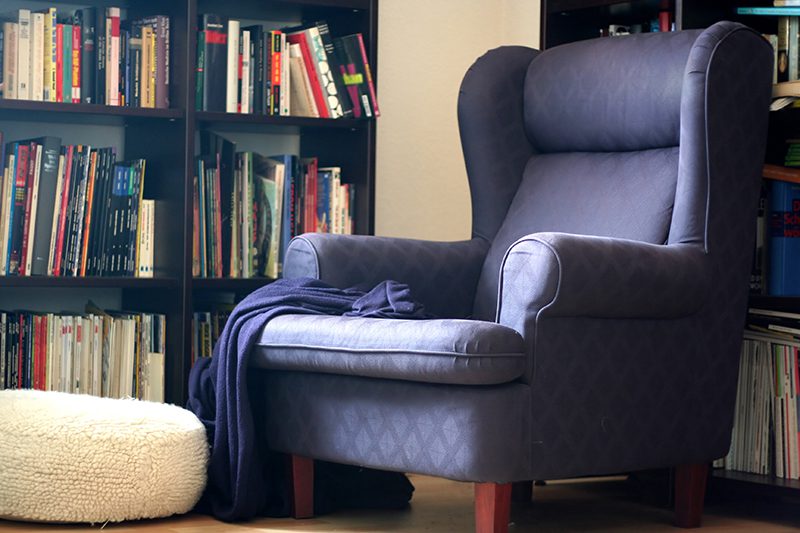When you think about the craft of writing, what are the first images that come to mind? A typewriter, a computer, a pen and pad, a desk and other writing tools? But what of the space where these tools belong. Just as silence makes sound possible, space makes creation possible. A space that holds the tools of our craft, but also an internal space that holds the belief that as writers we have something worthy to say. Without space the writing cannot happen. Many new writers find that while they dream of that book or essay or poem they will someday write, it never feels quite real. They are waiting or perhaps searching for that something that will give their idea momentum and form. That something is not more time or self-confidence, it is space. A writing space.
Not everyone has a vacant room in their home that can be converted into their writing space. In fact, I would venture to say that most people don’t have an extra room. But don’t be discouraged; there are many ways to create spaces. Here are a few examples.
Home Space: You can easily convert an area of your bedroom, living room, or even a corner of your kitchen, into a writing space. Adding a small end table with a coaster, a pad and pen, even a rug that represents the boundaries of your space, can help shift your perceptions about that space. A chair positioned near a bookcase, a small table facing a window or even a favorite nook or alcove could all be converted into small writing spaces. For years I worked in my dining room. My computer desk was positioned against a wall so that when I sat down to work, I was not facing my dining table and chairs and the reminder of my home responsibilities but I was facing my writing. It was a great way to stay focused and tune out my kids and other distractions.
Portable Space: Not every home is suitable for creating a writing space and not every individual can block out the distractions of home. In that case you can create a portable space. It could be a backpack where you keep your writing tools, a briefcase or even a large handbag specifically selected for that use. A portable space allows you to carry the tools of your trade with you so that you can write while sitting at the park, or at a nearby coffee shop, a bookstore, and even public transportation. You carry your space with you.
Co-working Space: This option is suitable for people who have limited home space or for some reason or other are unable to work at home but find the portable space option too distracting. The downside to this option is the cost. There are many different price options that range from sharing a desk with someone (cheap) to renting your own private room (expensive). But for some this is a great alternative.
Now that we’ve covered some of the types of spaces you might consider for yourself let me offer to you the reasons that creating a space for your writing is so valuable.
Permission
There is something about designating a spot that is meant for only one use that feels so validating. Creating a space just for the purpose of writing gives us the permission we need from ourselves.
Ritual
Having a space allows us, as writers, to create rituals around the craft. Rituals are important for cultivating habits and integrating writing into our lives. Ritual helps turn our writing into a practice.
Legitimacy
Do you find it hard to call yourself a writer? Creating a writing space that is only used for writing, YOUR writing, will ease the anxiety about imposter syndrome i.e. (I’m not a real writer, I just dabble.) Learning to call yourself a writer, is about creating interior space, the room for you to believe that you are a writer.
Respect
Having a space to write creates a sense of privacy around your writing. Others will naturally respect your space when you designate as such. Respecting your own writing naturally follows. By creating the space in the first place you are making a claim that you deserve a place to write. It only makes sense that you will begin to respect your desire to write what is in you when you have afforded yourself a place to do it.
Healing Creative Scars
Many of us have had important people in our lives inadvertently discourage us from our craft. A well-meaning parent who says your writing will never make you much money, or a friend who thinks your fantasy stories are a waste of time etc. When you set aside a place and carve out the time that you will spend in that place, you are creating a sacred space for healing your scars around creativity.
If having a place to write has been holding you back I encourage you to create your own writing space. Don’t wait for someone else to tell you that you are a writer, for someone else to validate you with praise or encouragement. By creating your own writing space you are sending that message to yourself and ensuring that you will have the best possible chance at success.

